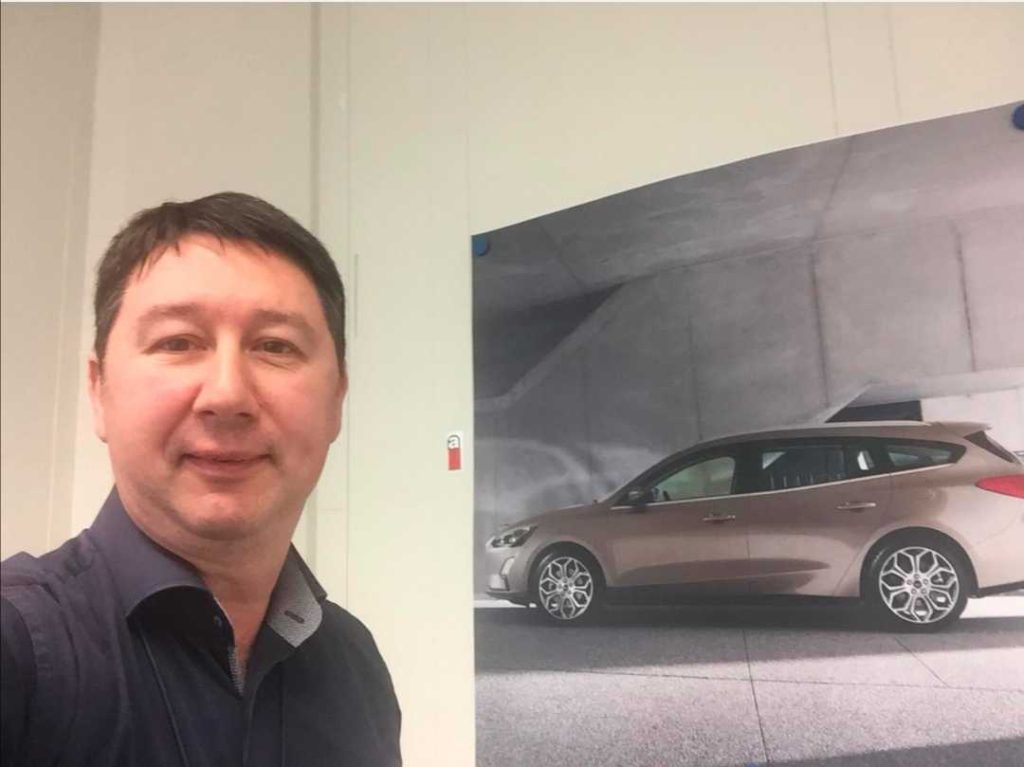Stefan Beckers: Real solutions can only be found with creative minds
Sometimes, it’s the opportunities that jump out at us unexpectedly that tend to have the most impact on our lifelong paths. Stefan Beckers, the chief program engineer at Ford Motor Company, has been with the internationally well-known automotive business for 26 years in different capacities. From manufacturing to management to logistics to programs, his professional and creative self has grown with each new experience.
Over the years, Stefan has made a name for himself as always being open to new challenges and positions. He has dove into the deep and dirty end of the job but has also shifted both from an organizational, departmental viewpoint, as well as from a geographical one. From Belgium to the United Kingdom to Turkey to Russia and back, Stefan has grown with each international move. He highlighted one of these steps in his chapter featured in Sonophilia’s newly published book Creativity Matters.
“Coming back to Belgium for the last time,” Stefan told Sonophilia, “and being able to change my career path from a manufacturing purely into product launch and product quality was basically one of those decisive moments that I didn’t realize at that point in time… I can say throughout my career, it has always been out of the box thinking and looking forward and finding creative ways to solve problems rather than staying stuck in traditional thinking patterns.”
Democratizing creativity is the pillar upon which Sonophilia stands. From an automotive industry perspective, while it isn’t typically renowned for being particularly creative or innovative, Stefan takes a firm stand on the importance of cultivating creativity in that field. This is most evident when we consider modern efforts to create electrical and hybrid cars to attain more fuel efficiency.
“There is an extremely strong push to reduce tailpipe emissions,” he explained. “The creative part which is needed there in various science labs and within the technology and automotive companies is the battery development. The key question there is how can we make the batteries much more efficient (and) lighter. There is no way in the world that can be done without creative minds and brains… The modern way of doing business is to create a whole raft of services that connect the customer towards the brand.”
Much of Stefan’s research has focused on the human-machine interface in modern vehicles, such as technical design systems, infotainment, comfort, and driver assistance features. While such technological evolutions have certainly become more standardized in many commercial and high-end types of vehicles, for Stefan, listening to the customer is always most important. This means taking into account their extensive feedback on software, functionality, or upgrades.
“We are permanently monitoring the feedback that we’re getting from customers with basically two aims. The first aim is obviously to make sure that the product they’ve bought will work flawlessly, but more importantly, all of that feedback and all of that knowledge is then being fed back into the development of the next generation of a human-machine interface [system].”
It is perhaps this appreciation for feedback that attracted Stefan to the Sonophilia Foundation, but more specifically the openness and diversity of the people involved. He was heavily involved in helping to organize the first-ever Sonophilia Global Day in September 2020, with hubs in Salzburg, Berlin, Bonn, and London. Stefan applauds the broad range of members and the way in which they share their experiences without expecting anything in return.
“I want to expand and continue what I have been doing since both my wife and I became members, which is trying to successfully bring in people we either know from our existing networks outside of Sonophilia… After having had the opportunity to host the event here in Bonn, we want to look forward on how we can continue to work with local Sonophilians and spread the message into the wider community. That would help us to attract more people.”
In order to do that, Stefan has devoted himself to enhancing and broadening the network, especially now, with all the challenges that have undoubtedly come with the COVID-19 pandemic. He and his wife Lisa are currently working on bringing in individual families to play games that spark creativity. One game they’re exploring was developed by fellow Sonophilian Friederike Riemer called the Future Game 2050, which combines writing skills, future thinking, and philosophy.
“[We’re trying] to find a way to implement that, obviously within the restrictions, using that game to start sharing the idea and the significance of Sonophilia, and with that, trying to broaden the network and attract more creative and critical thinking people to the Sonophilia family and community.”




